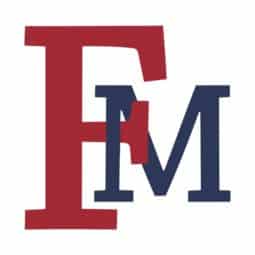Dual Degree Program in Engineering
Students enrolled in a liberal arts or science program at FMU who wish to prepare for a career in engineering may do so through a cooperative program between FMU and Clemson University. Under this program, it is anticipated that a student will spend three years at FMU in a special pre-engineering curriculum and two years at Clemson University studying an engineering discipline.
Upon successful completion of this program, the student will receive a Bachelor of Science degree in an engineering discipline from Clemson University and a Bachelor of Science (or Arts) degree in an appropriate field from FMU. A student with grades no lower than “C” in all courses in the dual-degree program, and a cumulative grade point average of at least 2.7/4.0, is assured of admission into most Clemson engineering programs.
Some Clemson engineering departments may require a higher cumulative grade point for admission and students must meet the intended department’s standard for acceptance.
Available Majors
Upon transfer to Clemson University, the following engineering majors are available to students who participate in the Dual Degree Program in Engineering With Clemson University:
- Biosystems Engineering
- Electrical Engineering
- Computer Engineering
- Industrial Engineering
- Chemical Engineering
- Material Science and Engineering
- Civil Engineering
- Mechanical Engineering
Course Requirements
- A minimum of 86 hours must be completed with a grade of C or above in each course.
- A course may be retaken to improve the grade to C or better, but grades in all courses will be considered by Clemson University in determining a student’s grade point average.
- All General Education Requirements at Francis Marion University must be met. However, in order to simultaneously satisfy a General Education Requirement at Clemson University, one of the following courses should be taken at FMU:
- Music 101
- History 105
- Philosophy and Religious Studies 202
- In addition, the following courses must be completed:
- Some of these may be included as part of the General Education Requirements
Physics
- PHYS 200 – Technical Physics I
- PHYS 201 – Technical Physics II
- PHYS 202 – Technical Physics III
- PHYS 220 – Computational Methods
- PHYS 314 – Modern Physics
Mathematics
- MATH 201 – Calculus I
- MATH 202 – Calculus II
- MATH 203 – Calculus III
- MATH 301 – Ordinary Differential Equations
- MATH 306 – Multivariable Calculus
Chemistry
- CHEM 111/111L – General Chemistry I: General Concepts/Lab
- CHEM 112/112L – General Chemistry II: General Concepts Chemistry/Lab
Economics
- ECON 203 – Introduction to Microeconomics
- ECON 204 – Introduction to Macroeconomics
Electives
A minimum of seven hours of electives must be selected in consultation with advisers at Clemson University and Francis Marion University. The selection will be influenced by the student’s choice of engineering major.
Recommended courses include the following:
Physics
- PHYS 301 – Classical Mechanics
- PHYS 306 – Computational Physics
- PHYS 310 – Electronics
- PHYS 312 – Lasers and Optics
- PHYS 406 – Advanced Computational Physics
Mathematics
- MATH 304 – Linear Algebra
- MATH 305 – Linear Programming
- MATH 312 – Probability and Statistics for Science and Mathematics
- MATH 425 – Numerical Analysis
Computer Science
- CS 227 – Programming and Algorithmic Design II
Chemistry
- CHEM 201 – Organic Chemistry I*
- CHEM 202 – Organic Chemistry II*
- *Chemical Engineers only
Course Descriptions
-

CHEM 111 – General Chemistry I: General Concepts in Chemistry
Prerequisites/Corequisites: MATH 111 (or MATH 111E).
Credit Hours: Min: 3; Max:Description: The states of matter, including the gas...
-

CHEM 111L – General Chemistry I Laboratory: General Concepts in Chemistry
Prerequisites/Corequisites: CHEM 111 and MATH 111 (or MATH 111E).
Credit Hours: Min: 1; Max:Description: Introductory laboratory experiments reinforce...
-

CHEM 112 – Gen Chem II: General Concepts Chemistry
Prerequisites/Corequisites: Take CHEM 111 and CHEM 111L.
Credit Hours: Min: 3; Max:Description: Oxidation-reduction, equilibria, electrochemistry, thermodynamics, acids and...
-

CHEM 112L – Gen Chem II Lab: Concept Lab
Prerequisites/Corequisites: Take CHEM 111 and CHEM 111L. (Required, Previous). | Take CHEM 112. (Required, Concurrent).
Credit Hours: Min: 1;... -

CHEM 201 – Organic Chemistry I
Prerequisites/Corequisites: Take CHEM 112 and CHEM 112L. (Required, Previous).
Credit Hours: Min: 4; Max:Description: The structure, properties, synthesis,...
-

CHEM 201L – Organic Chemistry I Laboratory
Prerequisites/Corequisites: Take CHEM-201. (Required, Concurrent).
Credit Hours: Min: ; Max:Description:
-

CHEM 202 – Organic Chemistry II
Prerequisites/Corequisites: Take CHEM 201. (Required, Previous).
Credit Hours: Min: 4; Max:Description: The structure, properties, synthesis, and reactions of...
-

CHEM 202L – Organic Chemistry II Laboratory
Prerequisites/Corequisites: Take CHEM-202. (Required, Concurrent).
Credit Hours: Min: ; Max:Description:
-

CS 227 - Programming & Algorithmic Design II
Prerequisites/Corequisites: Take CS-226; Minimum grade C. (Required, Previous).
Credit Hours: Min: 3; Max:Description: Continuing study of algorithmic design,...
-

ECON 203 - Introduction to Microeconomics
Prerequisites/Corequisites:
Credit Hours: Min: 3; Max:Description: Introduction to the role of individuals in economic decision-making, the determination of...
-

ECON 204 - Intro to Macroeconomics
Prerequisites/Corequisites:
Credit Hours: Min: 3; Max:Description: Introduction to the operation and behavior of the economy as a...
-

Prerequisites/Corequisites: Take 1 group (Take MATH-132; Minimum grade C /Take MATH-137; Minimum grade C /Take MATH-S570). (Required, Previous).
Credit... -

MATH 201L - Calculus I Workshop
Prerequisites/Corequisites: Take MATH-201. (Required, Concurrent).
Credit Hours: Min: 1; Max:Description: Intensive calculus workshop for students enrolled in...
-

Prerequisites/Corequisites: Take MATH-201; Minimum grade C. (Required, Previous).
Credit Hours: Min: 3; Max:Description: Continuation of Calculus I,...
-

Prerequisites/Corequisites: Take MATH-202; Minimum grade C. (Required, Previous).
Credit Hours: Min: 3; Max:Description: Continuation of Calculus II,...
Courses Found: 37